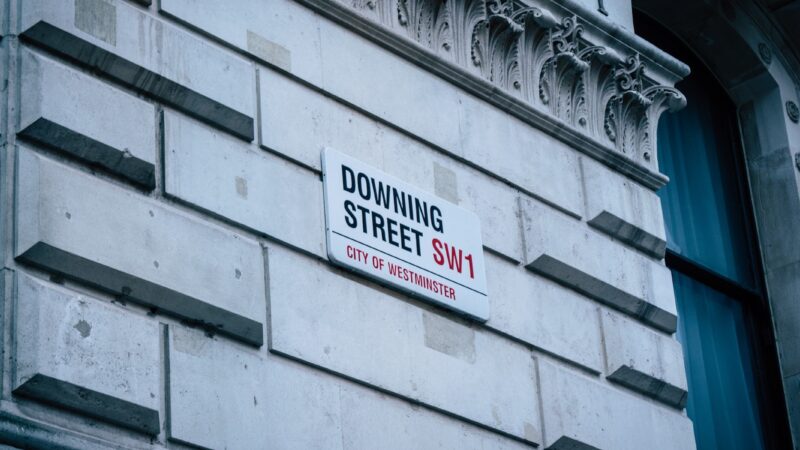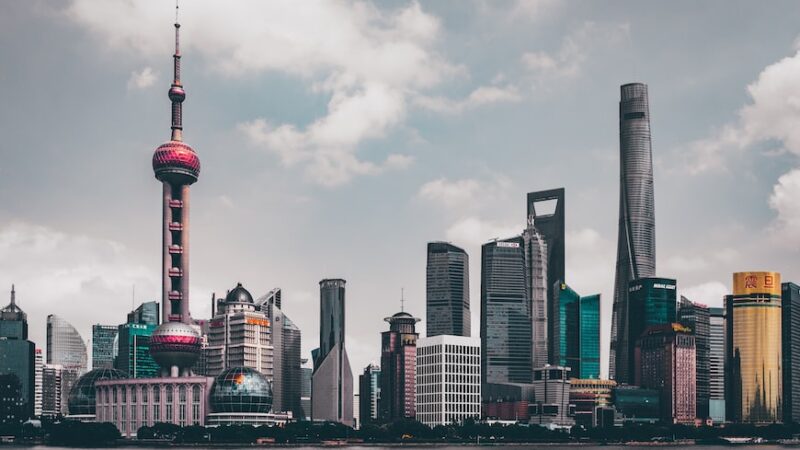Making Plans Without Nigel
Nigel Farage’s rise to prominence came in the wake of the utter implosion and failure of the BNP. After what seemed to be promising growth for this nationalist vehicle it effectively self-sabotaged to the point of complete unviability. Years of activism and goodwill pissed away. This is a subject deserving of attention in and of itself but will wait for another time. Enter UKIP, a party that although libertarian had the glimmer of nationalism in its eye with it’s main goal being leaving the EU. They had been rolling along in the background of British politics but were never really given any mainstream attention. The BNP was a eurosceptic party so the voter base could transfer over nicely to UKIP, although UKIP itself barred BNP members from joining for pragmatic optic reasons. Nigel essentially served as the frontman of the “fruitcakes and loonies” and his gift for public speaking and particularly his keeping alive of the immigration question attracted disenfranchised nationalists.
After this point, politics in the UK was overtaken by the Scottish independence debate as well as the question of Brexit. The latter obviously being achieved but poorly implemented. Glossing over this part of recent history to the meat of it; Nigel essentially forced the Tories to do something they were otherwise unwilling to do, leave the EU. Whether it was arrogance or fear that drove them to it we will never really know. What has transpired since then is a complete revelation to a great mass of people of the complete duplicitous nature of the Tory party. Nigel moved from UKIP to a new vehicle, the Brexit Party, in order to pressure the Tories into delivering a no-deal Brexit over accepting some Europe favouring deal. Post-Brexit the party has become Reform.
It was immediately clear that the Tories never wanted Brexit, indeed many of the things they publicly say they want or will do never come to fruition. It’s a party of saying one thing and doing the opposite. Nigel’s presence in British politics has been key in revealing this. When the last general election came up Reform made the decision to stand down in order to not split the vote and lose to Labour (who would have most certainly delivered a worse Brexit deal) ensuring another period of Conservative government. This is where the most recent criticism of Nigel begins in earnest.
Nigel is (dis)credited with “saving” the Tories. This is frankly preposterous. What has transpired over these last few years is a complete exposure of the true nature of this “conservative” institution. Reluctant Brexit deal, shambolic lockdown and further inability to reduce immigration. As we come toward the end of this 13+ year period of Tory rule what have they actually achieved for their voters? Nothing. Well not nothing, they’ve actually massively increased immigration.
If Reform had taken the decision to split the vote then potentially a Labour government would have been in charge of the exit deal and over lockdown. This would have given yet another excuse for Tory diehards, and the party itself, to say they would have behaved differently. Thankfully we don’t live in that reality, they’ve shown their true colours once again. Nigel has played the long game and come out of top. Are you really going to vote for a Conservative party that continue the same people that have been in power for 13 years?
As we are approaching what looks like a massive Labour win we have to remember what got us into this mess. Nigel has given the Tories enough rope to hang themselves with, the stool just needs a kick. Under a potential future Labour government we need to remember that, we can’t let the Conservatives sneak back in under the false bravado and empty talk the likes of which Suella Braverman has been deploying in recent weeks.
Rumours of Nigel as the next Conservative leader, after his appearance at the Tory conference, have been quashed by the man himself. He can’t envisage leading a party that stands for nothing and ultimately does nothing. I can only see his leadership happening if the party is completely gutted and that seems extremely unlikely at this point in time.
Nigel is not leading Reform at the moment, that task unfortunately falls on Richard Tice. A particularly boring man, a charisma vacuum, a damp rag to borrow a phrase from Nigel. If that party is to go anywhere it needs its old helmsman. I can’t think of a better place and time for Mr Farage to step back into a leadership position.
Where does that leave nationalists? Well firstly after being very kindly carried on Nigel’s back for over a decade it’s time for us to forge our own path. There is currently not a suitable vehicle for nationalism in the UK so it seems to be falling to independent candidates. I am currently only aware of one candidate that is stepping forward in the next election, Steve Laws, and would encourage every British nationalist to get behind him in this brave endeavour. The next decade is going to be critical for nationalism we simply have to get a party together, or commandeer one, and start winning seats locally and nationally. UKIP made an attempt to transform into a more nationalistic party, albeit in the vein of Tommy Robinson’s anti-Islam/counter Jihad. Although given what has happened recently, a staunchly Zionist party being the only vehicle for nationalism could have been a disaster. As I’ve said previously, we should exhibit caution when taking sides in the Israel-Hamas War. A fresh start waits on the horizon.
Mr Farage is not a gatekeeper, recently he said he believes a party will come along that makes him look quite tame. That’s us, we’re waiting in the wings but held back by our nature of being disparate and largely anonymous. Funding is also another great issue but there are plenty of content creators that surely, if they cared, could set aside some of their patron money towards the founding or funding of something tangible. Can funding be courted by actually engaging in active British politics? Potentially. The BNP had substantial membership and funds so there is certainly money out there to be had if only we could present ourselves more concretely to the British public. The Right in recent years has concerned itself with debate club topics of history and religion. These are naturally important but we can’t lose track of the ballot box if you genuinely feel that it is possible to gain ground electorally, which I do.
Nigel has expressed for years his desire to retire out of the political limelight, he was never masquerading as a saviour for our demographic woes, he just wanted Britain to leave the EU. That has been achieved, albeit imperfectly, so the future of Reform is uncertain but if it can pressure the Conservative party into genuine change then he will have done us another great service. The priority is stopping the endless tide of immigration into this country, finally carrying out the will of the British people after all these years.
As stated, the next decade will be incredibly important for nationalism in the UK, any advocacy for lowering, if not outright stopping immigration, should be pursued as our top priority. Find a vehicle that suits you and begin supporting it, either from the sidelines or involving yourself if you feel able to. The difficulty with our brand of nationalism, one that advocates for the native White British population, is that it will make you a persona non grata in many walks of life. That will change, but for now it is understandably a risk many cannot take. These issues will be hashed out in the coming years, as more speak out and as the imported problems of immigration can no longer be hidden or obfuscated the less taboo the subject will become. Indeed, given the current events in the middle east are reverberating back to our shores many are seeing the current & future demographic problem writ large.
Fundamentally, we are walking on a similar but distinct path from Nigel, we can no longer expect him to be something he isn’t. That is delusional for us and unfair, ultimately, on him. By doing that, we risk fostering resentment and poisoning what have ultimately been positive developments for nationalism when we otherwise would have been scattered and homeless. I doubt we’ll immediately separate fully from his political influence but now is our time to step into the limelight.
Nigel Farage’s significance to British nationalism today will not be forgotten, like Enoch Powell before him, it is foundational for many. Here’s to ARE Nige! Always and forever!










Breakfast with Thierry Baudet (Part I)
In mid-July, The Mallard was fortunate to have breakfast with Thierry Baudet, leader of the Dutch ‘Forum for Democracy’ (FVD) party in the Netherlands. We discussed his views on manufactured consent, immigration, CBDC, and climate change; and his new book ‘The Covid Conspiracy’.
The Mallard (TM): The Mallard knows your youth movement, JFVD. Their performance is very impressive. How did FVD start?
Thierry Baudet (TB): FVD began as a Eurosceptic think tank. In 2016, we organised a national referendum in the Netherlands opposing the association agreement with Ukraine. We won this referendum with more than 60% of the vote. The government, however, decided to ignore the outcome and sign the agreement anyway. That is when I decided to run for parliament.
I was elected in 2017.
It was clear from the beginning that we had substantial support amongst the young. Once we founded our youth movement, we had a thousand paying members within three hours.
We realised that people do not necessarily want to come together just for political discussion, they also want social and economic contact. That is why we organise sports events, social events, trips to the countryside, and so on.
We have an app now so people can sell products, offer services, send in job applications. We even have a Tinder function for dating so that FVDers can reproduce.
Fundamentally, we go about things with an energy which is truly different from that of any of our competitors. I denounce them in my book as ‘conservatards’ – the conservative establishment across the Western world which has become part of the deep state.
TM: The Blob?
TB: Yes. Or the Swamp. These people are afraid of speaking about any of the real issues. For example, they say ‘Sure there is climate change, we need to do something about our emissions, but let’s build nuclear power stations and not wind turbines’. Or, ‘Yes, illegal immigration is bad, but we need legal immigration,’ and ‘Yes, Covid is a big problem but let’s not do a 9pm curfew, instead an 11pm curfew.’ They accept the underlying assumptions and therefore never come up with truly different ideas.
They are unwilling to step out of the parameters set by the enemy. They are fighting a battle on the enemy’s ground, so they lose. But the price of not fighting on the enemy’s ground is to be labelled. That is how taboos work. So when you say ‘I want to leave the European Union, I do not think our sovereignty should be diminished by a supranational body,’ then you are labelled a nationalist. If you were to say, ‘It does not matter if immigrants come in legally or illegally, the problem is immigration as such. It is the transformation of our society from a cultural, ethnic, and historical point of view – that is the real issue,’ then you are denounced as a racist.
So, all of these taboos, these labels, function to protect the fundamental assumptions. If you live by them you also belittle yourself. You undermine your self-confidence; you undermine the energy with which you can bring your message across because you are not actually saying what you believe.
So, because we do not do that, unlike all the other so-called right-wing parties, we have a very special energy which you have noticed. People are happy with us, they are free.
TM: At most conservative events, there are very few women. When we attended your summer JFVD conference, it was pretty much half and half. Why?
TB: Because women understand that it is pointless to talk to people who are not willing to fight the real fight. They love men who take risks, who take pride in going their own way, taking their own route, believing in their own ideals. These are very important masculine values.
I do not see any sensible woman being attracted to the sort of effeminate bureaucrat the other parties produce. I do not see conservatards getting laid.
TM: Why do you think young men are attracted to your movement?
TB: Because men have a very hard time when they are young. Their chances of becoming financially well-off are slim. Their life is extremely difficult because of all these policies imposed on them. You are not allowed to be a meat-eater in all aspects of life. It is vital for men, especially young men, to have an aspirational goal – to be fighting for something.
TM: You want to be the hero of your own story. That is very difficult in a society which regards boys as defective girls.
TB: Boys are not allowed to play in the woods anymore, they are not allowed to be boys. It is only normal that a counter movement is rising.
TM: Talking of counter movements, what are your thoughts on the BBB (Boer Burger Beweging, the Farmers’ Citizen Movement)?
TB: Oh, it is a typical party cartel trick. BBB is a party consisting of former Liberal Party members and Christian Democrats. They operate entirely within the accepted ideological framework. That is also they are celebrated so much in the press. Nothing will change with them in government.
TM: If that’s the case, will the situation ever change in the Netherlands or Europe?
TB: The system is very strong and very difficult to break through via the democratic process – because it is not really democratic. We in the West are living in a heavily controlled oligarchy where certain groups are allowed to win elections. If a dark horse comes through, like Donald Trump, the entire system turns against him. It makes it effectively impossible to change things through the political process.
Things can change only if peoples’ trust in the system as such – and by that, I mean, the permanent political class and its media – crumbles. That is what happened when the Communist system failed in Europe. That is one scenario. The other scenario is that things will carry on as they are but that we will build a parallel society. We will be able to live in our own way, as the Amish do in America. We will be minorities in our own countries but we will survive.
TM: Is this linked to your App? What is it that your app does?
(*At this point Thierry got out his phone and showed me his app*)
TB: Here is a map which shows every FVD supporting company. We add new businesses every week. There is a commerce section where people can buy and sell goods. It has a coupon function so that you can get discounts at FVD-supporter-owned shops. It is very comprehensive. We are trying to expand this internationally so that people can organise parallel networks to help add value to themselves and thousands of others.
You see, I’m fighting on two tracks. First, the national platform to reach out to people and to wake them up to the consequences of current policies and governments. Second, I am faced with the globalist establishment from which there is no escape. We cannot avoid the fight because it is what we are here to do. We are part of a civilisation. If you run away from it, the fight becomes internal – you begin to eat yourself up.
TM: Just in the Netherlands?
TB: Across the whole world. During Covid as now on Ukraine. I find it absolutely stunning that every mainstream outlet supports NATO’s war against Russia in Ukraine. There is a genuine economic and ideological cartel of the deep state which is follows decisions of the military industrial complexes.
TM: What really depressed me during Covid was that so many seemingly normal and rational people fully and wholly supported the lockdowns. People demanded that they be locked into their own homes.
TB: The conclusions that we should draw are about more than merely societal or economic costs. This is why I wrote my book. I was the only elected politician in the world to have opposed all Covid measures radically. It is why I am not allowed on television anymore. All the institutions set up which in theory create checks and balances do not function anymore. The media and every mainstream party went along with it. It was not a national decision; everything had already been decided at the international level and was merely implemented at national level through fake discussions. That is how the world really works.
This is Part I of The Mallard’s interview with Thierry Baudet. To read Part II, click here.
Photo Credit.